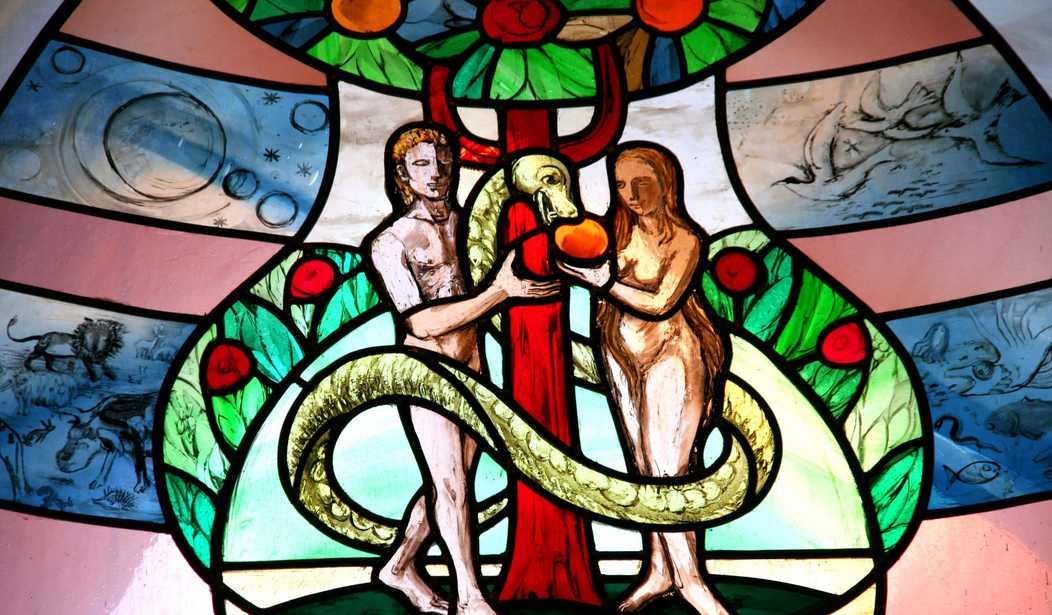Christians who believe that God created everything and that Adam and Eve were literal human beings from whom all other humans have descended are considered anti-science and are frequently mocked. The ridicule is expected; after all, Jesus did say that the world hates his followers. However, the charge of being anti-science isn’t true. The charge of anti-scientism is true, though. Thankfully, not all Christians who subscribe to evolution are guilty of scientism either. Biologist Richard Buggs demonstrates this as he argues for the possibility that humans may have descended from a single human pair.
On his blog, biologist Richard Buggs, who is also a Christian, provides the backstory,
A few months ago, I was reading a new book by Dennis Venema and Scot McKnight entitled Adam and the Genome. I was surprised to find a claim within the book that the past effective population size of humans has definitely never dropped below 10,000 individuals and that this is a fact of comparable scientific certainty to heliocentrism. I emailed Dennis Venema, the biologist author of the book, to query this. Unfortunately, he has not yet responded. I therefore remain unconvinced that it is a scientific impossibility for human beings to have all descended from a single couple.
The book in question is an attempted reconciliation between the belief that God is the author of all things with the current evolutionary teachings about the origins of humans. One of the book’s conclusions is that Adam and Eve were not historical figures. Four chapters of the book, all authored by Scot McKnight, professor of New Testament at Northern Seminary, are devoted to arguing that a literal Adam and Eve are not necessary for Christianity to be valid.
McKnight acknowledges that the Apostle Paul understood Adam to be historical, but claims that Paul was wrong and that his theology isn’t dependent on the historicity of Adam, to begin with. Theologians Kenneth Keathley and Gavin Ortlund have done a good job of responding to McKnight (you can read those responses by clicking here and here). Biologist Richard Buggs deals specifically with McKnight’s co-author, biologist Dennis Venema.
In the email that he published on his blog, Dr. Buggs reminds Dr. Venema,
That a single pair of individuals can carry a great deal of heterozygosity with them through a bottleneck, if they come from an ancestral population with high diversity, and they will pass that on to the population they found, so long as it grows rapidly.
As you will know, it is a feature of humans that despite our current census population size of over seven billion individuals, we have lower genetic diversity than the world’s much smaller current day population of chimpanzees. The average human has 3.1 million single nucleotide variants (SNVs), but the average chimp has 5.7 million (Prado-Martinez et al 2013 Nature). African humans approximately 1.1 heterozygous SNVs in every 1000bp, whereas central chimpanzees have approximately 1.75 (Prado-Martinez et al 2013 Nature). Thus, if two central African chimpanzees were taken today and used to found an isolated population that experienced explosive population growth, the new population would have similar levels of genetic variability to modern humans.
I am not stating these figures because existing populations of chimpanzee gave rise to modern humans, but simply to show that it is hard to see how overall levels of SNP diversity and heterozygosity in modern humans could exclude the possibility of a past bottleneck of two individuals.
Dr. Buggs concludes his lengthy and dense email with an apology for the length and then warns Dr. Venema:
[You] seem to be on very shaky ground here, and in danger of alienating Christians from science on the basis of a wrong interpretation of the current literature. In this case, I think you are being a bit over-zealous for science, and insisting on an overly literal interpretation of the past Ne literature. I would encourage you to step back a bit from the strong claims you are making that a two person bottleneck is disproven.
Regardless of the outcome of this exchange, one thing is certain: science is not settled. However, the Bible is settled and true.









Join the conversation as a VIP Member